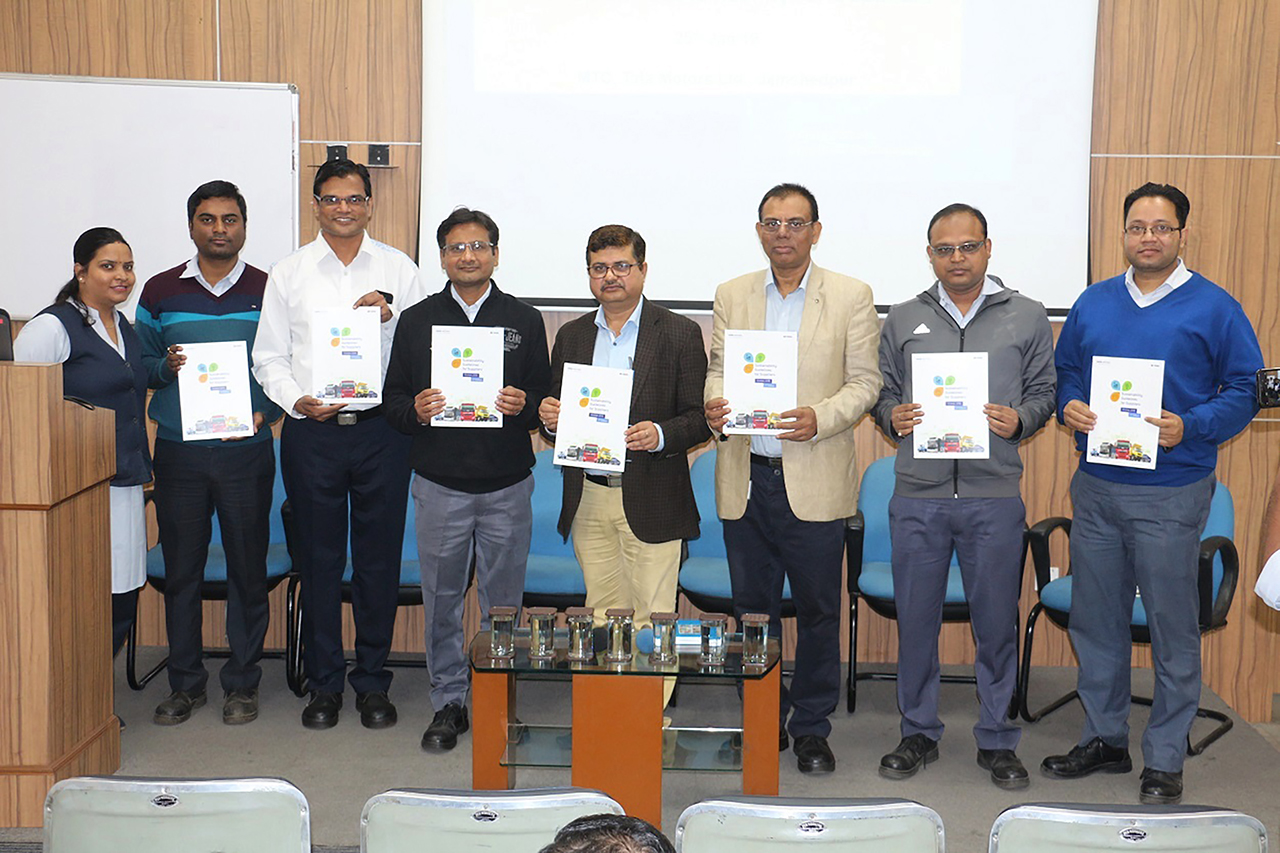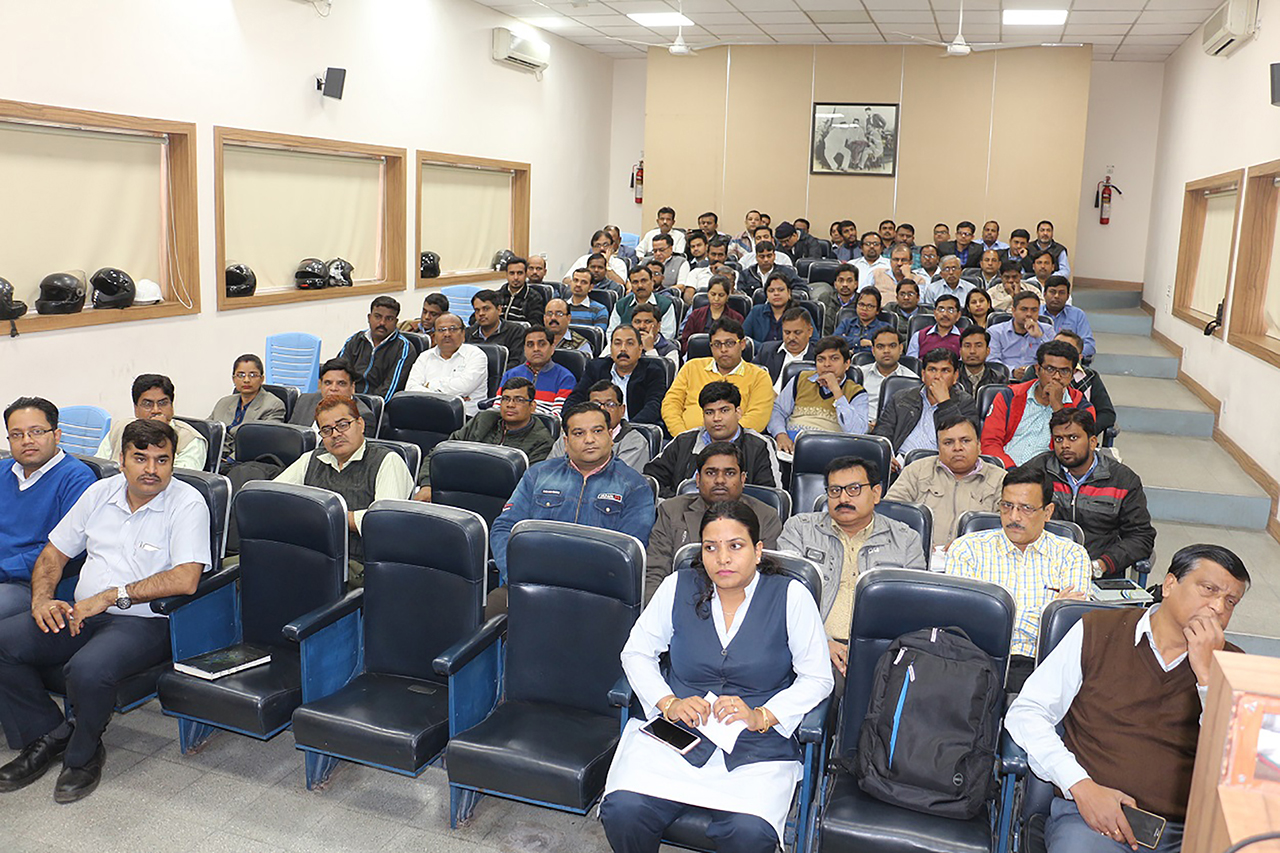Sustainability is at the core of Tata Motors and the company has consciously engrained this factor in every aspect of their business with a three-pronged approach: sustainable mobility, sustainable manufacturing and product stewardship. Rajesh Rajgor finds out more in an exclusive interaction with S J R Kutty, Chief Sustainability Officer, Tata Motors

What is the rationale behind Tata Motors’ sustainability programme and what is the gamut of the company’s supervision given the vast number of suppliers involved?
The Tata Group has established a rich legacy of being a custodian of public good. At Tata Motors, ‘responsibility’ is one of our core values. We have consciously engrained sustainability in every aspect of our business by stretching ourselves to adopt more meaningful ways to reduce our impact on the planet, while still delivering exciting products and sustainable solutions to our customers. Going beyond mere compliance, the company has actively pursued the practice of continuous improvement and inclusiveness.
By understanding the holistic impact of our activities, we have streamlined our operations, making them more efficient and focused our sustainability efforts towards building long-term economic viability, environmental protection and social equity. We understand that to realise the true essence of sustainability, it needs to be integrated not only in our own operations but also across our value chain. As a result, we embarked on a sustainable supply chain journey to improve the sustainable performance of our supply chain. As a part of this programme, we regularly engage with our huge network of suppliers on a wide range of sustainability-related topics to raise awareness to minimise the environmental impacts of our supply chain.
What are the guidelines under which the stakeholders work?
Tata Motors’ sustainability guidelines for suppliers’ sets our expectations for supplier partners with respect to environmental, social and governance (ESG) practices. We are implementing this initiative in a phased manner, which involves sustainability assessments of selected suppliers. These assessments gather information on topics like safety, health, environment governance structure, legal compliance, management system certifications, energy consumption, greenhouse gas emissions, environmental data like water, waste and hazardous chemicals, occupational health and safety, labour practices, packaging and logistics, and social responsibilities.

Being a signatory of the RE 100 (a global corporate renewable energy initiative bringing together hundreds of large and ambitious businesses committed to 100% renewable electricity) and committed to using 100% renewable power, Tata Motors has taken several strides towards this goal by progressively increasing the proportion of renewable energy used in our operations. The company intends to source renewable power with more rigour and as best possible to fulfil our aspiration of sourcing 100% renewable electricity for operations by 2030.
Could you share details of the agenda at the workshops and programmes conducted so far?
As part of sustainable supply chain programme, Tata Motors has been organising sustainability awareness workshops for its suppliers. Since the beginning of this programme in FY 2016-17, we have organised over 30 workshops covering around 700 suppliers. The agenda at these workshops include:
• Rationale behind the sustainable supply chain programme
• Supporting the government’s efforts to accelerate sustainable mobility with our unique initiative, Tata UniEVerse
• Explaining the suppliers’ sustainability guidelines and data templates
• Module on basics of sustainability covering topics like sustainable development, triple bottom-line, lifecycle assessment, circular economy, sustainable development goals (SDGs), nationally determined contributions (NDCs), etc.
• Module on sustainability at Tata Motors covering our best practices on safety, health, environment and governance
• Module on mandatory legal compliance requirements
• Encouraging suppliers to share their success stories and best practices followed by felicitation.
How has this diligence helped Tata Motors in particular and the industry in general so far, including the commercial vehicle space?
Our sustainable supply chain initiative was recognised by the United Nations Global Compact Network India (UNGCNI) and FM Logistic India in the top seven entries of the Innovative and Sustainable SCM Awards 2021. In the CDP Climate Change Response 2020, Tata Motors was rated overall ‘A-’ (leadership band) and ‘A’ for the parameter of value chain engagement. We also assessed over 270 strategic suppliers of ours under the sustainable supply chain programme. The key highlights of their sustainability performance were 31% reduction in absolute energy consumption, 30% reduction in absolute emissions, 24% reduction in fresh water consumption and 43 suppliers using renewable energy.

We have always been conscious of the need to conserve energy in our manufacturing plants which leads to increased energy efficiency, reduced carbon emissions, utilisation of more renewable energy and reduction in operational costs. In FY19 we commenced an initiative across plants called ‘value from hazardous waste’, aimed at diverting hazardous waste from landfill and incineration to approved sites and deriving value from the same. This initiative aimed to achieve zero waste to landfill status from manufacturing operations. Today, five out of seven of our plants are zero hazardous waste to landfill.
What is the future roadmap for this initiative? How does it make the suppliers and the entire supply chain efficient?
Our way forward on the sustainable supply chain programme aims at continued engagement with our supply chain on different sustainability parameters and encouraging suppliers for installation of rooftop solar PV modules and rainwater harvesting systems. The outcomes of these sustainable supply chain programmes are aimed at improving sustainability awareness and safety culture and encouraging suppliers’ adoption of energy conservation initiatives like renewable energy and rainwater harvesting systems.
For product stewardship our emphasis is on product lifecycle outlook, use of alternate materials and end-of-life recycling and reuse, material and building efficiency with modular designs, 100% recycled bumpers and extended oil drain life. We are the first Indian OEM on IMDS and IDIS and Tata Nexon is the first Indian car to be published on the prestigious International Dismantling Information System (IDIS) platform for end-of-life Vehicles. We have 98 patents received in FY21 for innovation in engineering and design and look forward to continuous improvement and inclusiveness.